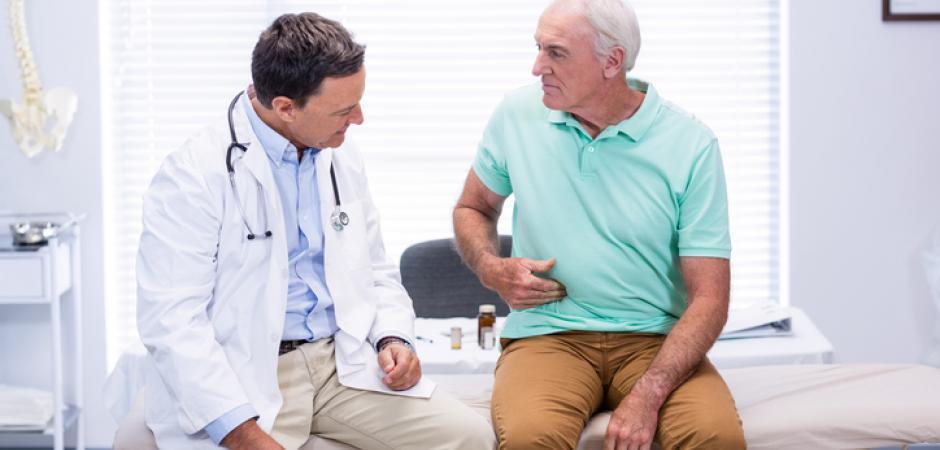
Gastroenterology is the study of your digestive system, which includes the esophagus, stomach, pancreas, gallbladder, liver, intestine, colon and rectum. In some cases, such as colonoscopy, it involves standard health screenings. We treat a variety of conditions, including:
- Achalasia, dysphasia and other swallowing disorders
- Barrett’s esophagus
- Constipation or diarrhea
- Crohn’s disease and colitis
- Colon cancer
- Colon polyps
- Esophageal cancer
- Gallbladder and biliary tract disease
- Gastroesophageal reflux (GERD)
- Hepatitis and liver diseases
- Irritable bowel syndrome (IBS)
- Pancreatitis
- Pancreatic cancer
- Peptic ulcer disease
- Rectal bleeding
- Ulcerative colitis
Catch colon cancer early
Colorectal cancer is the third-leading cause of cancer-related deaths in the United States. However, with proper screening, colon and rectal cancer can be prevented. Colorectal cancer often starts in the large intestine (colon and rectum) as a polyp, a small growth on the inner lining of the colon. Symptoms can be nonspecific. Common abdominal ailments or a change in bowel habits are common occurrences, but don’t always mean you have colorectal cancer.
According to the American Cancer Society, the recommended age to start regular colorectal screening is 45 unless you have a family history of colorectal cancer or predisposing, inherited syndrome.
Other factors that may contribute to colonic polyps include inflammatory bowel disease, smoking, obesity, drinking alcohol, lack of exercise and eating a diet rich in fats.
A colonoscopy is the best way to detect colorectal cancer. This examines the entire large intestine and detects the presence of polyps that could be or possibly become cancerous. When discovered early, colon cancer is highly treatable, so colonoscopy screening is crucial.
Screening is recommended for patients who have the following symptoms:
- Blood in the stool
- Rectal bleeding
- Change in bowel habits or lower abdominal cramping
- Family history of colon cancer and over age 40
- Over age 45 (even without symptoms)
Follow us on Facebook as we spread awareness of colorectal cancer, prevention and early detection, and treatment options.
For more information or to schedule your colonoscopy, talk to your doctor or call 903-747-4737.

